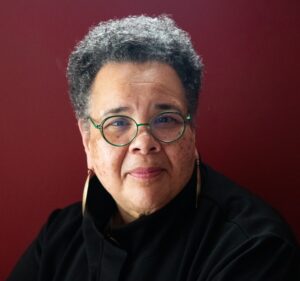
Permission Giving
The Wabash Center teaches toward freedom in hopes of liberation and healing. We have learned that acts of freedom occur in many forms, and occasionally involve receiving permission. Since 2019, I have had the honor of reading the feedback forms completed by participants at the end of events and programming experiences. In addition to reading the feedback, there are regular occasions of extemporaneous comments from participants about the insights they have gained during the convened conversations. There is a reoccurring theme: the experience of having been given permission. They have reported having received permission to move towards new habits, practices, attitudes, approaches, and aspirations. Permission to strive for improved teaching is a key theme. Permission to expect more care, consideration and regard from the institutions by which our participants are employed is often mentioned.
Much of this feedback comes from early-career colleagues for whom learning to navigate faculty culture is new. Similarly, there are a significant number of seasoned colleagues for whom the Wabash Center sponsored conversations are lifegiving and permission providing.
I hear gratitude in this feedback. More importantly, I hear that the giving of permission has been moments of empowerment, agency, healing and inspiration toward freedom. I want to share with you a list of the kinds of permissions that are reported in hopes that you too might be encouraged towards new freedoms.
Participants have said that, I received permission …….
- to develop my own voice, to speak up and speak out without embarrassment, fear, or guilt
- to take the authority given me by my role and responsibility through hire, tenure or promotion
- to think differently about the established traditions or about the outmoded presumptions of my institution or academic field
- to, rather than give my power away, make decisions that are faithful to my values and ethics
- to command and adjust my own syllabus in my own courses
- to act as a good citizen in my institution in ways that align with my own needs, wants, aspirations, desires and longing; to work in integrity
- to prioritize my mental or physical health and the wellbeing of my family
- to teach across disciplines for the benefit of my students and in ways that meet their expressed curiosities
- to strive for a work/life balance and maintain that balance over my career
- to say “No” to requests which do not suit me or which would overload or overwhelm me
- to ask that I be called by the name of my choosing (with or without title) and that my name be correctly pronounced
- to report acts of bullying and aggression against me or others
- to seek counseling, coaching, mentoring, spiritual direction throughout my career
- to take the time and needed psychic space to grieve over the failure of a significant achievement or the loss of a beloved
- to be creative, imaginative, and wonder as an approach to teaching
- to pursue outside interests, hobbies, and play
- to resist grind culture, to resist productivity at the expense of my own wellness or the wellness of my family
- to communicate when acts of violence like racism, sexism, classism, homophobia occur
- to parse between the obligations of my scholar/teacher identity and my employment duties
- to rest.
The list is in no way comprehensive or exhaustive. I give you the list so you can see the kinds of issues which need to be attended to so that a healthy work environment is created and maintained. It takes hard work to move from a toxic and unhealthy culture to a culture of care, belonging, and justice. Perhaps giving permission to individuals to make healthy communal choices is a start.
Leave a Reply